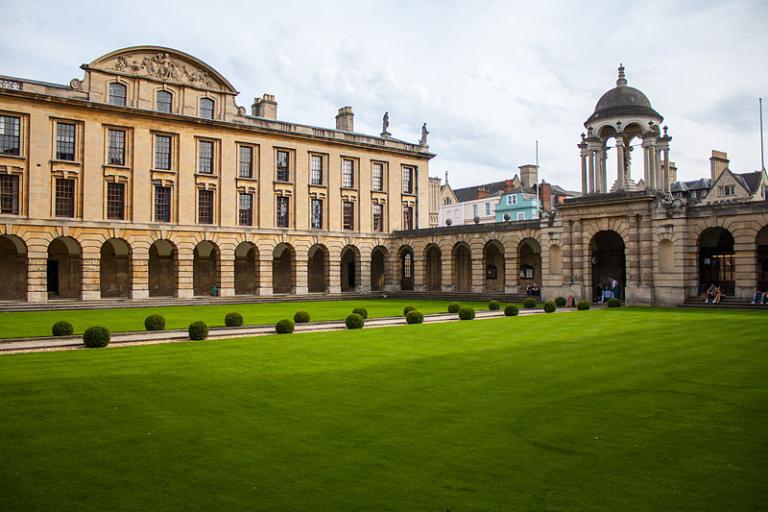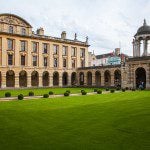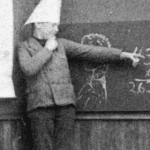
In 1944, C. S. Lewis delivered an address to the Oxford Socratic Club. Here are two related passages from it:
“The whole picture professes to depend on inferences from observed facts. Unless inference is valid, the whole picture disappears. Unless we can be sure that reality in the remotest nebula or the remotest part obeys the thought-laws of the human scientist here and now in his laboratory—in other words, unless Reason is an absolute—all is in ruins. Yet those who ask me to believe this world picture also ask me to believe that Reason is simply the unforeseen and unintended by-product of mindless matter at one stage of its endless and aimless becoming. Here is flat contradiction. They ask me at the same moment to accept a conclusion and to discredit the only testimony on which that conclusion can be based. The difficulty is to me a fatal one; and the fact that when you put it to many scientists, far from having an answer, they seem not even to understand what the difficulty is, assures me that I have not found a mare’s nest but detected a radical disease in their whole mode of thought from the very beginning. The man who has once understood the situation is compelled henceforth to regard the scientific cosmology as being, in principle, a myth; though no doubt a great many true particulars have been worked into it. . . .
“I was taught at school, when I had done a sum, to ‘prove my answer’. The proof or verification of my Christian answer to the cosmic sum is this. When I accept Theology I may find difficulties, at this point or that, in harmonising it with some particular truths which are imbedded in the mythical cosmology derived from science. But I can get in, or allow for, science as a whole. Granted that Reason is prior to matter and that the light of that primal Reason illuminates finite minds, I can understand how men should come, by observation and inference, to know a lot about the universe they live in. If, on the other hand, I swallow the scientific cosmology as a whole, then not only can I not fit in Christianity, but I cannot even fit in science. If minds are wholly dependent on brains, and brains on bio-chemistry,and bio-chemistry (in the long run) on the meaningless flux of the atoms, I cannot understand how the thought of those minds should have any more significance than the sound of the wind in the trees. And this is to me the final test. This is how I distinguish dreaming and waking. When I am awake I can, in some degree, account for and study my dream. The dragon that pursued me last night can be fitted into my waking world. I know that there are such things as dreams: I know that I had eaten an indigestible dinner: I know that a man of my reading might be expected to dream of dragons. But while in the nightmare I could not have fitted in my waking experience. The waking world is judged more real because it can thus contain the dreaming world: the dreaming world is judged less real because it cannot contain the waking one. For the same reason I am certain that in passing from the scientific point of view to the theological, I have passed from dream to waking. Christian theology can fit in science, art, morality, and the sub-Christian religions. The scientific point of view cannot fit in any of these things, not even science itself. I believe in Christianity as I believe that the Sun has risen not only because I see it but because by it I see everything else.”
C. S. Lewis, “Is Theology Poetry?” in C. S. Lewis, Screwtape Proposes a Toast, and Other Pieces (London: Collins, Fontana Books, 1965), 55, 57-58.
Posted from Washington DC












